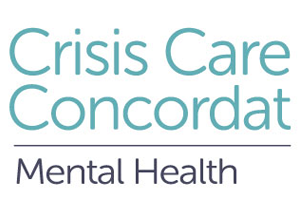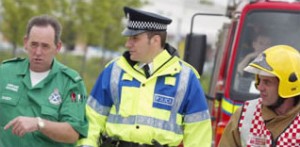Government-led reviews, reports, memorandums of understanding – concordats even – are all for nothing if they can’t actively lead change and challenge others to do the same. If they lack the ambition to raise standards and improve outcomes they will fail to drive the changes needed to deliver better services for people. It’s a tough challenge made tougher still when multiple institutions are called on to demonstrate leadership, discipline and shared purpose.
 In the previous Parliament, this Department and a broad alliance of sector partners, ably coordinated by our colleagues in mental health charity Mind, agreed and committed to the goals of the Mental Health Crisis Care Concordat. Its overarching aim: to achieve dramatic improvements in service responses for those experiencing mental health crises. In particular, there was a focus on dramatically reducing the number of people placed in police custody. Parallel to this was the intent to provide police officers with more support – including knowledge of and improved access to – places of safety for those needing specialist psychiatric assessment and onward care.
In the previous Parliament, this Department and a broad alliance of sector partners, ably coordinated by our colleagues in mental health charity Mind, agreed and committed to the goals of the Mental Health Crisis Care Concordat. Its overarching aim: to achieve dramatic improvements in service responses for those experiencing mental health crises. In particular, there was a focus on dramatically reducing the number of people placed in police custody. Parallel to this was the intent to provide police officers with more support – including knowledge of and improved access to – places of safety for those needing specialist psychiatric assessment and onward care.
So here’s the good news: in 2011-12, there were 8,667 recorded cases of police custody being used under section 136 of the Mental Health Act 1983. The Concordat set an ambition to halve this number by 2014-15 – a shared target for police and health services. The final number has fallen well below this - to 3,996 cases for 2014-15. That’s a reduction of 54 percent – a truly remarkable achievement.
I have to say, the committed drive from health and care professionals across the sector has helped bring us to this point. NHS England’s Mandate makes clear the need for mental health support for people in crisis to be available and sufficiently accessible to ensure no one is turned away from services. NHS England has subsequently asked all CCGs to make sure there is sufficient service capacity to prevent vulnerable people needing to be detained in cells after police detention under the Mental Health Act. The use of health based places of safety is rising and we of course welcome this.
Meanwhile, leadership from senior police figures has been clear and strong. Commander Christine Jones, National Police Chiefs’ Council Lead for Mental Health and Policing, restated a view I’m sure we all share: “People experiencing a mental health crisis are not criminals. Those who are urgently unwell… should be taken to a health-based setting to receive the right care and support. It’s unacceptable for anyone, of any age, to end up in a police cell because the appropriate mental health services are not available."
 Street triage has undoubtedly made a contribution to the improvements we have seen so far. Originally developed by police and mental health leads in Leicestershire and Cleveland, it’s been proven that when police and mental health staff work closely together, use of section 136 is reduced – for example West Yorkshire recently reported a 26 percent reduction and Thames Valley 39.5 percent in the areas covered by their schemes. But never mind the percentages; use of police cells has been almost entirely eradicated where these schemes operate.
Street triage has undoubtedly made a contribution to the improvements we have seen so far. Originally developed by police and mental health leads in Leicestershire and Cleveland, it’s been proven that when police and mental health staff work closely together, use of section 136 is reduced – for example West Yorkshire recently reported a 26 percent reduction and Thames Valley 39.5 percent in the areas covered by their schemes. But never mind the percentages; use of police cells has been almost entirely eradicated where these schemes operate.
More broadly, police practice is changing. These improved figures also reflect the efforts made by individual police officers to consider custody only as a last option. Police forces and health services are collaborating on local action plans and more officers are receiving mental health training.
There’s more to do of course. Whilst there were only 145 cases of under-18s detained in police custody in 2014/15 – down from 258 in 2011/12 - it remains the Concordat’s aim that no child or young person under the age of majority should be detained in police cells when they are mentally unwell. Plans for legislative changes announced last month by Home Secretary Theresa May, in response to proposals made by health professionals, social workers and police officers, will seek to make this a legal, not just moral, requirement.
In addition, the Care Quality Commission’s (CQC) ‘Right Here, Right Now’ report into people’s experiences, published tomorrow, will draw attention to areas of crisis care where more needs to be done to close the gaps in service provision and encourage greater compassion and understanding from those providing services.
So it remains our duty at a national and local level to make sure NHS and other children’s community services can respond quickly and effectively to children suffering acute mental distress. It is here the Concordat dovetails with the work of the Children and Young People’s Mental Health Taskforce – an initiative from the previous parliament I was proud to co-chair with NHS England’s Martin McShane and which explored new ways to raise service provision, quality and access for young people.
Looking ahead, I and others will continue to encourage local action plans which promote new or expanded therapeutic environments, such as crisis cafés and other places where advice and peer support is available to complement established NHS services. The news that this government intends to spend up to £15 million on places of safety is another welcome development – a development our combined efforts with the Concordat have surely helped bring about. So, while these results are very encouraging, the CQC are right to challenge any sense of complacency – we can and will go further.

1 comment
Comment by Adele Owen posted on
Police officers will only take a person detained under the MHA to police custody if the health based place of safety will not accept them or if both services agree that they are an unmanageable risk in that setting. (Perhaps an argument for more appropriate rooms to manage that individual in a health setting to be considered?).So the reduction in the use of police cells is due to the consideration of health staff more than individual police officers I would say. Police have known for a long time that a police cell is not a good environment for a mentally ill person to be placed in particularly when they have committed no offence. That view has only been accepted more widely by health partners recently. The work underway across all services to improve our response to those with mental Ill health has been a long time coming but is making a positive difference.